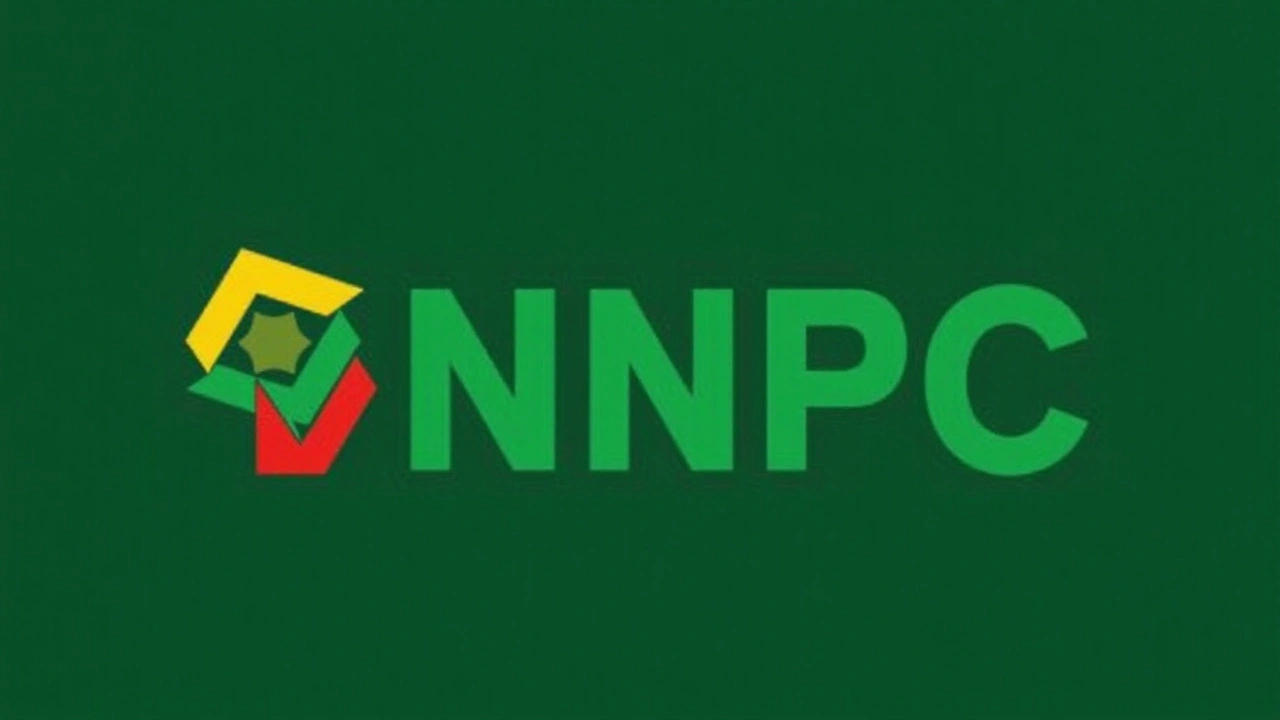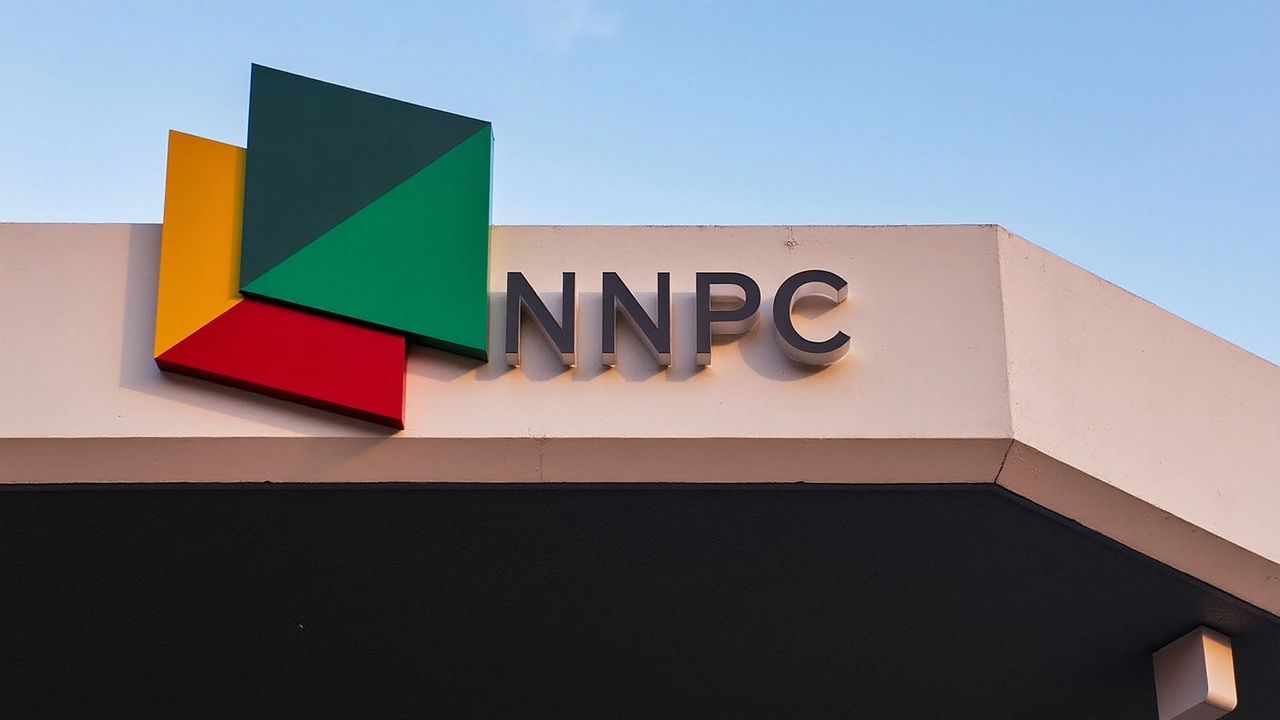The Genesis of the Controversy
The Nigerian National Petroleum Company Limited (NNPCL) has recently initiated the loading of petrol from the newly established Dangote refinery, marking a significant step in the nation's oil and gas sector. This move, however, has not come without its share of controversies. Reports indicate that the petrol is being loaded at an asserted price of N898 per litre, a figure that has raised eyebrows and sparked debates across various sectors. The situation is further complicated by the fact that the Dangote refinery has refuted this claim, opting not to reveal the actual sale price.
The ICIR has reported that NNPCL began loading petrol on Sunday following the deployment of over 100 trucks on Saturday. The NNPC's insistence on the pump price of N898 per litre seems to be at the crux of the contention. This pricing mechanism has led to questions from various stakeholders in the oil and gas sector, questioning whether this price genuinely reflects the market value of petrol or if other underlying factors are at play.
Economic Implications and Market Dynamics
The argument concerning the price of N898 per litre for petrol underscores a larger issue within Nigeria's oil market: transparency in pricing and the dynamics of market forces. The NNPC's decision to purchase petrol at this rate is seen by some as a move that might distort the market, leading to potential economic ripple effects. The government's role and influence in the pricing mechanism have always been a subject of debate, and this recent incident has only fueled further scrutiny.
For consumers, the price at the pump is a critical factor influencing their daily lives and economic activities. A price increase can have widespread effects, from the cost of transportation to the price of goods and services. Therefore, the alleged N898 per litre price has created a wave of concern among the populace, labor unions, and economic analysts who fear that such a pricing model could lead to inflationary pressures on the economy.

Alleviating Fuel Shortages Amid Controversy
Notwithstanding the pricing dispute, the NNPC has continued with its operations, loading and distributing petrol from the Dangote refinery. Their objective, according to sources within the NNPC, is to alleviate the ongoing fuel shortages that have plagued the country. Fuel scarcity has been a persistent challenge in Nigeria, leading to long queues at filling stations and a thriving black market for petrol.
The decision to proceed with distribution despite the controversy highlights the urgent need to address the fuel shortage crisis. However, this approach raises questions about the sustainability of such measures if the pricing issues are not resolved. Some experts argue that addressing the core issues of transparency and market-driven pricing is essential for achieving long-term stability in the fuel supply chain.
Reactions from Stakeholders
The pricing dispute has elicited reactions from various stakeholders in the oil and gas industry. Labor unions have been vocal about the potential repercussions of high pump prices on workers and the general population. They argue that the burden of increased fuel costs will ultimately be borne by ordinary Nigerians, exacerbating existing economic hardships.
Similarly, economic analysts have weighed in on the matter, emphasizing the need for a transparent pricing mechanism that reflects true market conditions. They contend that such transparency is crucial for attracting investment into the oil and gas sector and ensuring that the benefits of the Dangote refinery are fully realized.

Future Prospects and Resolution
Looking ahead, there is an urgent need for all parties involved to come to a consensus on the appropriate pricing mechanism for petrol. This involves not only the NNPC and the Dangote refinery but also regulatory bodies and other stakeholders in the oil and gas sector. A transparent and fair pricing model will be instrumental in establishing trust and stability within the industry.
In conclusion, while the commencement of petrol loading from the Dangote refinery represents a significant milestone, the accompanying pricing dispute highlights ongoing challenges in Nigeria's oil and gas sector. Addressing these issues comprehensively will require concerted efforts from all stakeholders to ensure that the benefits of domestic refining are passed on to the Nigerian populace, fostering economic growth and stability.
Table of Sector Analysis
| Stakeholder | Reaction |
|---|---|
| NNPC | Supports N898 per litre pricing |
| Dangote Refinery | Disputes N898 per litre pricing |
| Labor Unions | Criticize high pump prices |
| Economic Analysts | Call for pricing transparency |


Comments
Christian Barthelt
The NNPC’s claim of N898 per litre is mathematically inconsistent with the prevailing wholesale rates; if you subtract the refinery’s margin and transport costs, the figure inflates beyond any realistic market scenario. Moreover, the government’s historical subsidies have never been accounted for in such a headline number. It’s also worth noting that the official exchange rate used in the calculation skews the price upward. In short, the announced price appears to be a political talking point rather than an economically sound figure.
September 17, 2024 at 07:49
Ify Okocha
The sheer audacity of pushing a price that would cripple the average Nigerian’s wallet is nothing short of a betrayal. Every analyst knows the hidden taxes and levies already make fuel unaffordable; adding an arbitrary N898 per litre just deepens the abyss. This isn’t a “market price,” it’s a calculated squeeze that benefits no one except the entrenched elite.
September 17, 2024 at 08:05
William Anderson
The debut of petrol from the Dangote refinery should have been a watershed moment for Nigeria’s energy independence, yet instead it has been hijacked by a pricing narrative that defies basic economics. First, the advertised N898 per litre disregards the input cost of crude, refining margins, and the inevitable distribution expenses that any competent accountant can itemise. Second, by inflating the pump price, the NNPC risks distorting the entire downstream market, creating arbitrage opportunities for black‑market dealers who thrive on such artificial gaps. Third, the lack of transparency undermines investor confidence; foreign capital is already wary of opaque pricing mechanisms, and this incident only reinforces that wariness. Fourth, the supposed “national interest” argument evaporates when ordinary citizens are forced to allocate a larger share of their income to fuel, thereby reducing disposable spending on other goods and services. Fifth, the socio‑economic ripple effects are palpable: transportation costs surge, food prices climb, and the cumulative inflationary pressure erodes real wages. Sixth, the government’s reluctance to disclose the actual transaction price suggests either a strategic cover‑up or a fundamental miscalculation in policy design. Seventh, historical precedent shows that price hikes of this magnitude, when unaccompanied by substantive supply improvements, inevitably fuel public unrest. Eighth, the timing of the announcement-amidst ongoing fuel shortages-signals a disconnect between rhetoric and operational reality. Ninth, an honest price discovery process would involve independent auditors, clear cost breakdowns, and stakeholder consultation, none of which appear to be in place. Tenth, the NNPC’s insistence on the N898 figure, despite Dangote’s denial, resembles a game of chicken where the loser bears the fiscal pain. Eleventh, this episode could set a dangerous precedent for future refinery outputs, embedding price opacity into the industry’s DNA. Twelfth, the macro‑economic implications extend beyond the borders of Nigeria, as regional fuel traders monitor these pricing signals for arbitrage. Thirteenth, the public’s trust in state‑run enterprises erodes with each unexplained pricing anomaly, threatening the social contract. Fourteenth, a pragmatic approach would be to negotiate a price that reflects true cost structures while safeguarding consumer interests. Finally, without decisive corrective action, the promised benefits of domestic refining will remain a mirage, leaving the populace to shoulder the cost of an ill‑conceived pricing scheme.
September 17, 2024 at 10:00
Sherri Gassaway
One could argue that the moral weight of a price lies not merely in its numeric value but in the collective perception of fairness; when citizens feel cheated, the market’s legitimacy crumbles under the weight of dissent. Thus, transparency becomes the ethical cornerstone upon which sustainable pricing must be built. Without it, even the most sophisticated refinery cannot shield itself from the social backlash.
September 17, 2024 at 10:10
Milo Cado
It’s encouraging to see that, despite the controversy, the NNPC is still moving petrol to alleviate shortages; steady supply can help stabilize the market over time. If the pricing debate is resolved with stakeholder input, we could witness a more resilient fuel ecosystem. Collaborative solutions often emerge when all parties feel heard, and that optimism should guide the next steps. 😊
September 17, 2024 at 12:46
MONA RAMIDI
Enough with the excuses; the people are tired of being squeezed dry. Your empty promises won’t fill our tanks.
September 17, 2024 at 12:56
grace riehman
Let's keep the conversation focused on facts, not fearmongering.
September 17, 2024 at 15:33
Vinay Upadhyay
Ah yes, because the best way to solve a pricing crisis is to double‑down on opacity-brilliant strategy. The NNPC apparently believes that mystery adds value, which is a textbook case of reverse economics. If only the black market could appreciate such ingenuity, we might see a new era of profiteering. Yet, the ordinary commuter will still pay the same inflated rate, regardless of the theatrics. Perhaps a public ledger would be a more avant‑garde solution than this smoke‑and‑mirrors act.
September 17, 2024 at 15:43